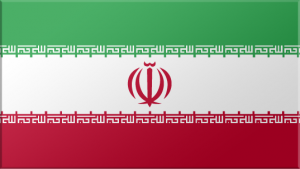The United States has cancelled the redeployment of aircraft carrier USS Nimitz as the Trump administration, in its final days, seek to carry on with its quixotic Iran agenda, exactly a year after the United States assassinated top Iranian Revolutionary Guard Corps commander Qassem Soleimani through a drone strike at the Baghdad airport.
According to a statement by Acting Secretary of State Chris Miller on January 3, “due to the recent threats issued by Iranian leaders against President Trump and other U.S. government officials, I have ordered the USS Nimitz to halt its routine redeployment. The USS Nimitz will now remain on station in the U.S. Central Command area of operations.”
“No one should doubt the resolve of the United States of America,” Miller added.
Three days earlier, on December 31, Miller had directed the Nimitz Carrier Strike Group to return home after a 10-month deployment in the region. According to a Pentagon statement at that time, the strike group had “repeatedly demonstrated operational excellence in providing air support to combat operations against terrorists in Iraq and Afghanistan and ensuring maritime security in critical waterways.”
The exact operational urgency behind this volte face remains unknown, though two events on January 4 could lead to a dramatic increase in Iran-U.S. tensions, especially if the Trump administration seeks domestic political gains from it.
Earlier on January 4, Iran followed through on its promise to resume uranium enrichment of up to 20 percent at the country’s mountainous nuclear facility in Fordow. As an Associated Press (AP) report explained the significance of this, the development “could see … brinksmanship return as that level of purity is only a technical step away from weapons-grade levels of 90 percent.”
In 2018, the Trump administration withdrew from the Joint Comprehensive Plan of Action (JCPOA) — an agreement between the permanent members of the United Nations Security Council, Germany, the European Union, and Iran – through which Tehran agreed to roll back its uranium enrichment plans along with allowing for rigorous monitoring of its nuclear program in exchange for sanctions relief. A year later, Iran announced that it was no longer going to be bound by its JCPOA commitments as the U.S. resumed sanctions.
On Monday, Iran also confirmed that it had seized a South Korean tanker “for polluting the Persian Gulf with chemicals.” According to satellite data obtained by AP, the ship, MT Hankuk Chemi, was sailing from Jubail in Saudi Arabia, to Fujairah in the United Arab Emirates. In all likelihood, Iran’s decision to seize the South Korean tanker was to demonstrate to both audiences at home and in the West that it remains undeterred by the Nimitz’s continued deployment near its waters. As one strategic commentator, Blake Herzinger, acerbically described the development on Twitter: “But the Nimitz is in the Middle East, we did a deterrence!”
The Trump administration’s decision to justify Soleimani’s assassination in January last year as “restoration of deterrence” has become something of a running joke among strategic analysts – especially given that five days after the event, Iran retaliated with missile strikes against two American bases in Iraq, not to mention the fact that there are no signs Soleimani’s killing has made the slightest dent in Tehran’s strategic ambitions.
But as the Trump administration continues to cook up new ways to cling on to power (including through a showdown in the U.S. Congress on January 6), unequivocal elections results be damned, an unspoken worry among many is that it could see a crisis in the Persian Gulf as providing precisely the opening it needs to do so. That said, war – like tango – takes two. It is unlikely that the Iranians have the appetite or the interest to enter into a full-blown conflict with the United States.

































